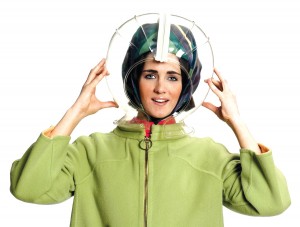Eventually you’ll have the implant, promised Larry Page several years ago, explaining that Google would someday literally be in your head, but isn’t it there already? Don’t we already see things radically differently, our brains having been tapped from the outside? Hasn’t that already made things better and also worse?
From Robert Pogue Harrison’s New York Review of Books anti-disruption screed,”The Children of Silicon Valley,” which I don’t agree with in the macro, though I acknowledge it makes some salient points:
“Our silicon age, which sees no glory in maintenance, but only in transformation and disruption, makes it extremely difficult for us to imagine how, in past eras, those who would change the world were viewed with suspicion and dread. If you loved the world; if you considered it your mortal home; if you were aware of how much effort and foresight it had cost your forebears to secure its foundations, build its institutions, and shape its culture; if you saw the world as the place of your secular afterlife, then you had good reasons to impute sinister tendencies to those who would tamper with its configuration or render it alien to you. Referring to all that happened during the ‘dark times’ of the first half of the twentieth century, ‘with its political catastrophes, its moral disasters, and its astonishing development of the arts and sciences,’ Hannah Arendt summarized the human cost of endless disruption:
The world becomes inhuman, inhospitable to human needs—which are the needs of mortals—when it is violently wrenched into a movement in which there is no longer any sort of permanence.
The twenty-first century has only aggravated the political, moral, social, and environmental concussions of the twentieth. There would be reason to applaud the would-be world-changers and start-up companies of Silicon Valley if they made it their business to resist or reverse this process of planetary upheaval, the way environmentalists seek to do with the wounds we have afflicted on nature. Sadly they have no such militancy in their souls, nor much thoughtfulness. With a few exceptions, our new tech armies rarely take the time to think through what they are doing. Or if they do, they tend to think in ways that only add to the turmoil and agitation.
Silicon Valley, and everything it stands for metonymically in our culture, has indeed affected billions of people around the planet. The innovations have come fast and furious, turning the past four decades into a series of ‘before and after’ divides: before and after personal computers, before and after Google, before and after Facebook, iPhones, Twitter, and so forth. In the silicon age, ‘changing the world’ means at bottom finding new and more ingenious ways to turn my computer or smart phone into my primary—and eventually my only—access to ‘reality.’
In truth Silicon Valley does not change the world as much as it changes my way of being in it, or better, of not being in it.”
Tags: Robert Pogue Harrison

